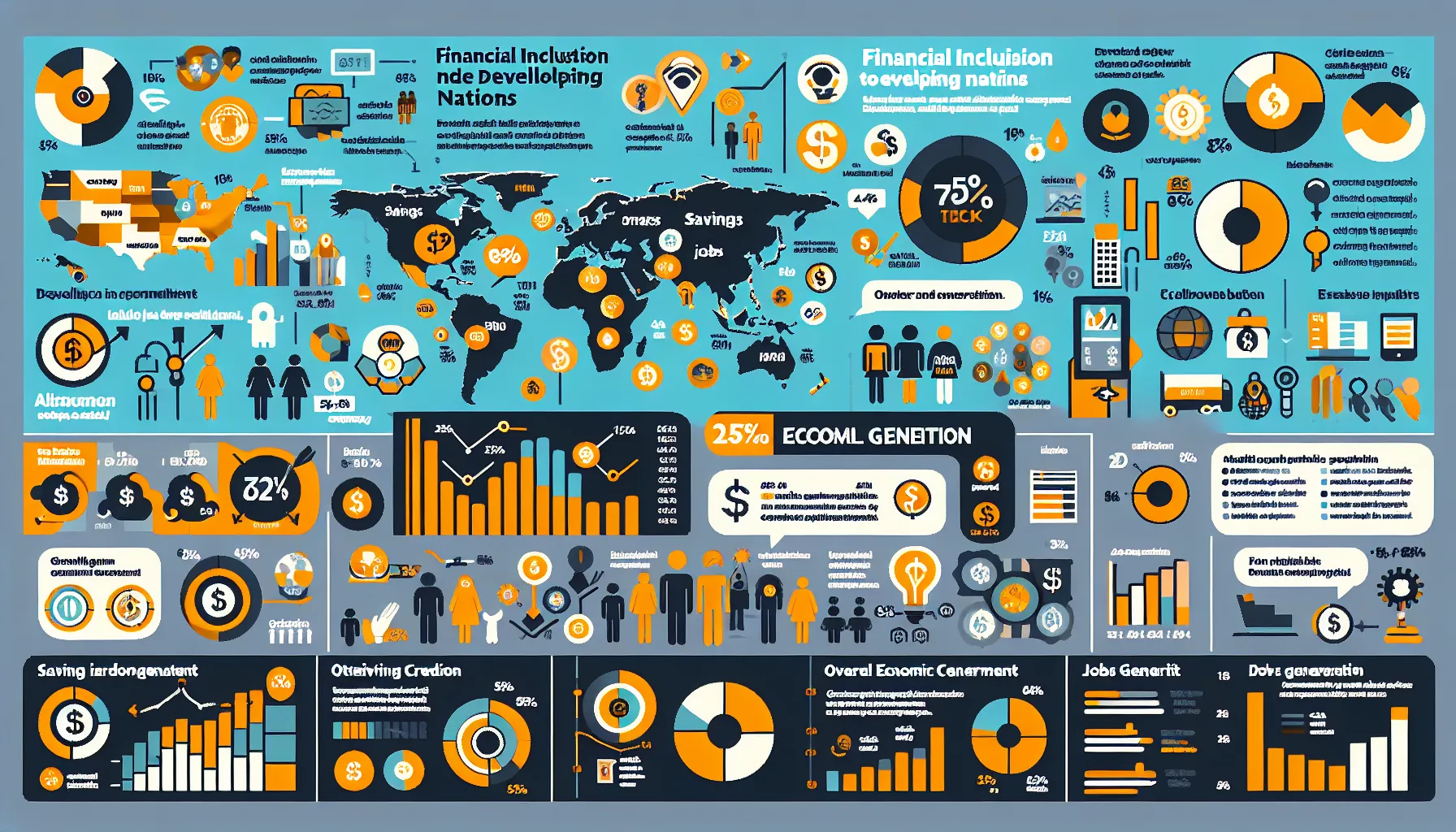Financial inclusion in developing countries is a crucial topic that frequently appears in IELTS Writing Task 2 exams. Its relevance to global economic development and social progress makes it a popular choice for test-makers. Based on past exam trends and current global issues, we can expect this theme to continue featuring prominently in future IELTS tests. Let’s explore a relevant essay question and analyze sample responses across different band scores.
Nội dung bài viết
Analyzing the Essay Question
Some people believe that financial inclusion is the key to economic growth in developing countries. To what extent do you agree or disagree with this statement?
This question asks for your opinion on the importance of financial inclusion in driving economic growth in developing nations. It’s essential to:
- Clearly state your position
- Provide well-supported arguments
- Consider potential counterarguments
- Use relevant examples
Now, let’s examine sample essays for different band scores.
Sample Essay for Band 8
Financial inclusion, the provision of affordable financial services to all segments of society, is indeed a cornerstone for economic growth in developing countries. While I largely agree with this statement, I believe it is one of several critical factors rather than the sole key to economic progress.
Undoubtedly, financial inclusion plays a pivotal role in fostering economic growth. By providing access to banking services, credit, and insurance to previously unbanked populations, it enables individuals and small businesses to save, invest, and protect themselves against financial shocks. For instance, in Kenya, the introduction of M-Pesa, a mobile money transfer service, has revolutionized the financial landscape, allowing millions of people to participate in the formal economy. This has led to increased economic activity, job creation, and improved living standards for many Kenyans.
Moreover, financial inclusion promotes entrepreneurship and innovation. When people have access to credit and other financial tools, they can start and expand businesses, driving economic growth from the ground up. In India, for example, the government’s push for financial inclusion through initiatives like the Pradhan Mantri Jan Dhan Yojana has resulted in millions of new bank accounts, enabling more people to access loans and grow their enterprises.
However, it would be an oversimplification to claim that financial inclusion alone is the key to economic growth. Other crucial factors include education, infrastructure development, and good governance. A well-educated workforce is essential for innovation and productivity, while robust infrastructure facilitates trade and commerce. Similarly, transparent and efficient governance creates an environment conducive to economic growth by ensuring fair competition and reducing corruption.
In conclusion, while I strongly agree that financial inclusion is a critical driver of economic growth in developing countries, it should be viewed as part of a holistic approach to development. Policymakers should focus on financial inclusion alongside other key areas to create a comprehensive strategy for sustainable economic progress.
(Word count: 309)
Analysis of Band 8 Essay
This essay demonstrates the qualities of a Band 8 response:
- Clear position: The writer agrees with the statement but qualifies it, showing nuanced thinking.
- Coherent structure: The essay has a clear introduction, body paragraphs with topic sentences, and a conclusion.
- Well-developed ideas: Each point is elaborated with explanations and specific examples (M-Pesa in Kenya, Jan Dhan Yojana in India).
- Cohesive devices: Appropriate use of linking words (undoubtedly, moreover, however) enhances the flow of ideas.
- Lexical resource: Use of topic-specific vocabulary (financial inclusion, unbanked populations, entrepreneurship) and sophisticated language.
- Grammatical range and accuracy: Complex sentence structures are used accurately throughout the essay.
 Financial inclusion impact
Financial inclusion impact
Sample Essay for Band 7
I largely agree that financial inclusion is a key factor for economic growth in developing countries, although it is not the only important element.
Financial inclusion can significantly contribute to economic growth in several ways. Firstly, when more people have access to banking services and credit, they can save money securely and invest in their future. This leads to increased economic activity as people start businesses or expand existing ones. For example, in Bangladesh, microfinance institutions have helped many rural women start small businesses, improving their families’ living standards and contributing to the local economy.
Furthermore, financial inclusion can help reduce poverty by providing a safety net for vulnerable populations. Access to insurance and savings accounts can protect people from financial shocks, such as medical emergencies or crop failures. This stability allows individuals to focus on long-term economic activities rather than day-to-day survival.
However, it’s important to note that financial inclusion alone cannot guarantee economic growth. Other factors such as education, infrastructure, and good governance are also crucial. For instance, even if people have access to financial services, they may not be able to fully utilize them without proper financial literacy. Additionally, a country needs good roads, reliable electricity, and internet connectivity to support a modern financial system.
In conclusion, while financial inclusion is undoubtedly important for economic growth in developing countries, it should be part of a broader strategy that addresses multiple aspects of development. Governments and organizations should focus on financial inclusion alongside other key areas to achieve sustainable economic progress.
(Word count: 253)
Analysis of Band 7 Essay
This essay exhibits characteristics of a Band 7 response:
- Clear position: The writer agrees with the statement but acknowledges other factors.
- Coherent structure: The essay has a clear introduction, body paragraphs, and conclusion.
- Developed ideas: Points are explained and supported with an example (microfinance in Bangladesh).
- Cohesion: Use of linking words (firstly, furthermore, however) to connect ideas.
- Vocabulary: Good use of topic-related vocabulary (microfinance, financial literacy).
- Grammar: Generally accurate with some complex structures, though not as sophisticated as the Band 8 essay.
Sample Essay for Band 6
Financial inclusion is very important for economic growth in developing countries. I agree with this statement because it helps poor people improve their lives.
When people have access to bank accounts and loans, they can save money and start businesses. This is good for the economy because more businesses mean more jobs and more money for everyone. For example, in my country, when banks started offering mobile banking services, many people in rural areas could open accounts and get loans easily. This helped them start small shops or farms.
Also, financial inclusion helps people protect themselves from problems. If they have savings accounts, they can save money for emergencies like sickness or natural disasters. This means they don’t have to borrow money at high interest rates from loan sharks when they have problems.
But financial inclusion is not the only thing needed for economic growth. Education is also very important because people need to know how to use financial services properly. Also, countries need good roads and electricity to support businesses.
In conclusion, I think financial inclusion is very important for economic growth in developing countries, but it is not the only factor. Governments should focus on financial inclusion along with education and infrastructure to help their economies grow.
(Word count: 213)
Analysis of Band 6 Essay
This essay demonstrates features of a Band 6 response:
- Position: The writer’s opinion is clear, but the argument lacks nuance.
- Structure: The essay has a basic structure with an introduction, body paragraphs, and conclusion.
- Ideas: Main points are present but less fully developed compared to higher band essays.
- Cohesion: Some use of simple linking words (also, but), but less sophisticated than higher bands.
- Vocabulary: Adequate but simpler vocabulary compared to Band 7 and 8 essays.
- Grammar: Mostly simple sentence structures with some errors that do not impede understanding.
Key Vocabulary to Remember
- Financial inclusion (noun) /faɪˈnænʃəl ɪnˈkluːʒən/ – The provision of affordable financial services to all segments of society
- Unbanked populations (noun phrase) /ʌnˈbæŋkt ˌpɒpjuˈleɪʃənz/ – People who do not have access to formal banking services
- Microfinance (noun) /ˈmaɪkrəʊfaɪnæns/ – Financial services provided to low-income individuals or groups
- Economic growth (noun phrase) /ˌiːkəˈnɒmɪk ɡrəʊθ/ – An increase in the amount of goods and services produced per head of the population over a period of time
- Entrepreneurship (noun) /ˌɒntrəprəˈnɜːʃɪp/ – The activity of setting up a business or businesses, taking on financial risks in the hope of profit
- Financial literacy (noun phrase) /faɪˈnænʃəl ˈlɪtərəsi/ – The possession of the set of skills and knowledge that allows an individual to make informed and effective decisions with all of their financial resources
- Infrastructure (noun) /ˈɪnfrəstrʌktʃə(r)/ – The basic physical and organizational structures and facilities needed for the operation of a society or enterprise
- Governance (noun) /ˈɡʌvənəns/ – The way that organizations or countries are managed at the highest level, and the systems for doing this
Conclusion
Financial inclusion in developing countries is a critical topic in IELTS Writing Task 2. Understanding its importance and being able to discuss it from various perspectives is crucial for achieving a high band score. Practice writing essays on this topic, focusing on clear argumentation, relevant examples, and appropriate use of vocabulary and grammar.
For further practice, consider writing essays on related topics such as:
- The role of technology in promoting financial inclusion
- The impact of financial inclusion on poverty reduction
- Challenges in implementing financial inclusion programs in rural areas
Remember to post your practice essays in the comments section for feedback and discussion. This active engagement will help you improve your writing skills and prepare effectively for the IELTS exam.


